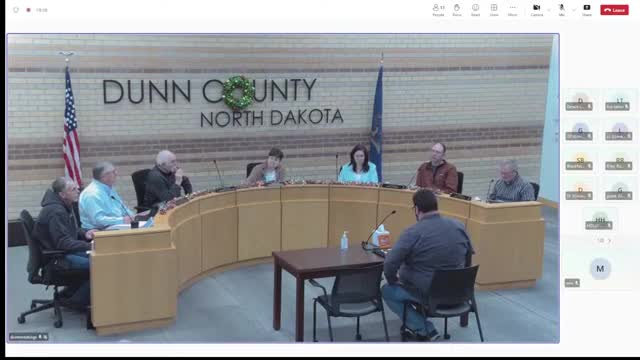Dunn County commissioners reject new master service agreement with Interstate Engineering after debate over paperwork and unfinished projects
Get AI-powered insights, summaries, and transcripts
Subscribe
Summary
Commissioners debated a proposed master service agreement (MSA) with Interstate Engineering, citing lengthy EJCDC-standard paperwork and unfinished county projects. On a roll-call vote the motion to approve the MSA failed 3–2.
Dunn County commissioners debated and voted on a master service agreement (MSA) with Interstate Engineering during the meeting. Commissioners raised concerns about the length and scope of the contract documents and whether the county should require completion of previously awarded work before authorizing new assignments.
The vote mattered because the MSA would set contract terms for future engineering work, including a task order tied to the Fifteenth Street project and planning for a 100 and Eighteenth Avenue project. Commissioners who opposed the agreement said they wanted existing projects finished before awarding more work; supporters said the MSA is a standard approach that enables more-efficient contracting.
James, an engineer from the firm presenting the MSA, described the document as an updated, standard EJCDC (Engineers Joint Contract Documents Committee) form and said the county attorney had reviewed it. “It is an updated version, so it's a little more lengthy than the last one but we went through and axed out what we didn't need,” he said.
Commissioner Clayman questioned the volume of paperwork. “Is it really necessary to have that much paperwork to do work for the County?” he asked. Commissioners urging restraint pointed to a backlog of unfinished assignments from 2021–22 and asked for a plan to complete outstanding projects before committing to new tasking.
The motion on the floor — to approve the MSA with Interstate Engineering — was seconded for further discussion. On a roll-call vote, Commissioners Bolton and Dalzo voted yes; Commissioners Heizer, Olsen and Cleeman voted no, producing a 2–3 tally against approval. Based on the recorded votes, the motion failed.
Commissioners also noted that the MSA and a separate task order can be considered separately: the MSA would govern future work, while the task order addressed a specific Fifteenth Street assignment. Several commissioners said they would be open to approving a task order when the scope is clearer and outstanding projects show progress.
Next steps discussed included scheduling follow-up meetings between commissioners and engineering firms to review outstanding invoices, dates of service, and billing practices before returning to the commission with a revised approach.
The discussion occurred as part of routine engineering updates; no new projects were authorized under this MSA at the meeting.
